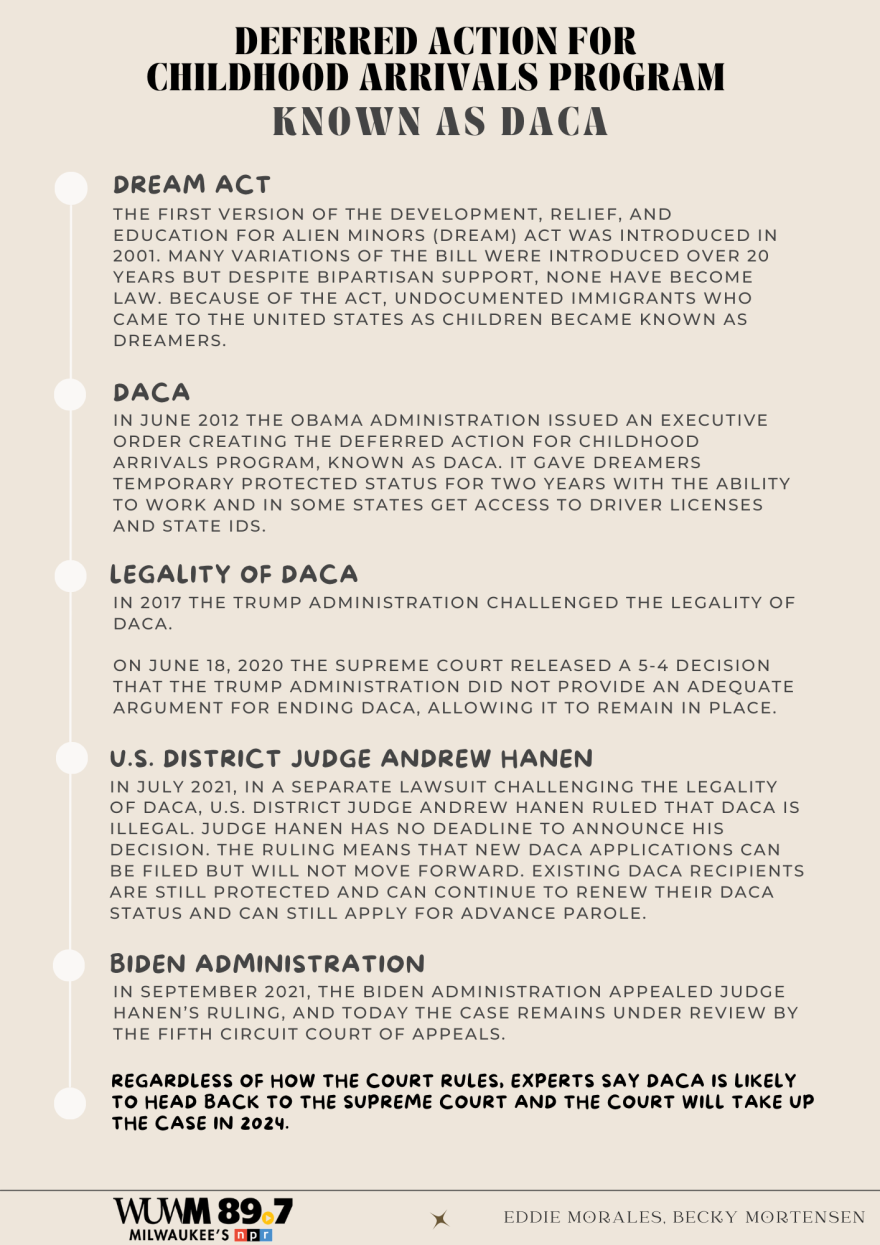The Deferred Action for Childhood Arrivals program — known as DACA —protects undocumented immigrants brought to the U.S. as children from being deported.
Last week, a federal judge in Texas began hearing arguments against DACA. Nine states, including Texas, want to end the program. This legal battle is creating confusion and fear for DACA recipients.

Melissa Soberalski and Nancy Plascencia, two members of Soberalski Immigration Law, explain how the program got here and what the future could hold.
As Soberalski details, the DACA program was established by the Obama Administration through an executive order in 2012. It granted qualifying individuals temporary protected status for two years and the ability to work, and in many U.S. states, that included access to driver’s licenses.
In 2017, the Trump Administration began attempts to end the program, which they did in 2020. Afterward, The Supreme Court decided that eliminating the program was illegal and reinstated it for a short time. In July 2021, a federal court ruled that the original Obama Administration executive order was unlawful and asked the Texas Federal Court to review that decision again. The Biden Administration proposed a revised version of DACA in August of 2022 to preserve the act, which went through a more formal rule-making process than the Obama Administration's DACA executive order.
"I think that the Biden Administration realizes that it's either, 'We try to protect this temporary solution through DACA, or we continue to try to push through Congress something more permanent.' But both are not looking so great," says Soberalski.
Currently, all new applicants are paused. Individuals may still file for DACA, but the cases won't move forward. Existing DACA recipients may continue to renew their status.
"Certainly follow the news coming out of Texas and [U.S. District Judge Andrew S.] Hanen's decision, I think that's going to really decide the more immediate future of DACA," says Soberalski.
The back and forth on the bill is causing dissent from some of Plascencia's clients. "It's hard because a lot of them rely on this work permit for jobs, and then not only does it affect them, a lot of them have family members, and one person in the household that doesn't have a job affects an entire family," Plascencia says. "The only thing you can do is renew, and there's no other way besides like talking to an attorney about seeking other options or looking to see if they have another permanent pathway."
For additional information and support, Soberalski recommends contacting the Mexican Consulate in Milwaukee if you are a Mexican national. If not, other resources include Voces de la Frontera and nonprofits that many universities have. Soberalski says DACA recipients must pay attention to when their DACA will expire and consider renewing, and also to consider using Advance Parole to travel outside the U.S. as it may or may not disappear after Hanen's decision.
Soberalski recommends that employers consider the impact this will have on those they employ and explore what they can do to help — contact employment-based immigration attorneys — find other solutions for DACA recipients.
_







